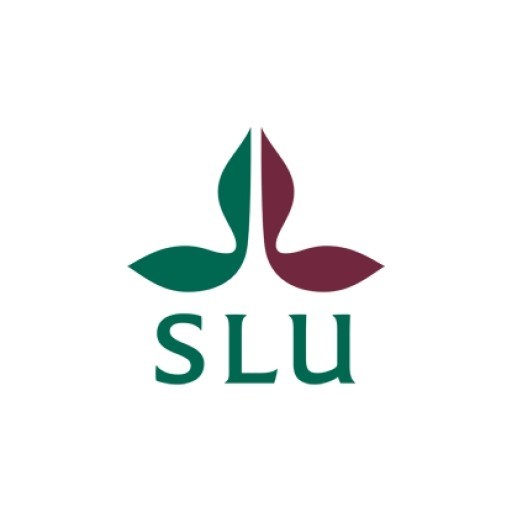Photos of university / #lundsuniversitet
The Master's Programme in Economic Demography at Lund University offers a comprehensive and interdisciplinary education that focuses on understanding the dynamics of populations and their economic implications. This program is designed to equip students with the analytical tools and theoretical knowledge necessary to analyze demographic trends, such as fertility, mortality, migration, and urbanization, and their impacts on economic development and policy. Students will explore various modeling techniques, statistical methods, and qualitative approaches to examine how demographic changes influence labor markets, social security systems, health care, and housing. The program emphasizes the importance of integrating demographic data with economic analysis to contribute to sustainable development and informed policymaking. Delivered through a combination of lectures, seminars, and project work, the curriculum encourages critical thinking and practical application of concepts in real-world contexts. The program is particularly suitable for those interested in careers within governmental agencies, international organizations, research institutes, or consultancy firms specializing in demographic and economic issues. Graduates will gain skills in data analysis, research methodology, and policy evaluation, preparing them for positions where demographic understanding is crucial to economic planning and social strategy. The programme also emphasizes international perspectives and fosters an understanding of demographic challenges across different regions and countries. Upon completion, students will be well-positioned to contribute to policy formulation, research, and strategic planning in both public and private sectors, making a meaningful impact on society’s development and well-being.
The Master's Programme in Economic Demography at Lund University offers a comprehensive and interdisciplinary education that explores the dynamic processes shaping populations and their impact on society and the economy. The programme provides students with a deep understanding of demographic trends, population development, migration patterns, fertility, mortality, and aging, integrating perspectives from economics, sociology, public policy, and statistics. Through a combination of theoretical frameworks and empirical research methods, students gain the analytical skills necessary to interpret demographic data, evaluate policy options, and contribute to sustainable development strategies. The curriculum covers key topics such as population theories, quantitative methods, demographic modeling, and policy analysis, preparing graduates for careers in research institutions, government agencies, international organizations, and private sector consulting firms. Emphasis is placed on developing critical thinking, data literacy, and the ability to communicate complex demographic issues clearly and effectively. The programme encourages active engagement with real-world demographic challenges, often through case studies and collaborative projects with external stakeholders. Students also have opportunities to participate in seminars, workshops, and internships that enhance their practical skills and professional networks. Graduates of the programme are equipped to analyze population-related issues critically and to contribute to policymaking and planning in diverse contexts. The vibrant academic environment at Lund University, combined with its strong links to global institutions and innovative research centers, ensures that students receive an education that is both academically rigorous and globally relevant. With a focus on sustainability and equitable development, the programme prepares students to address some of the most pressing demographic challenges of our time, fostering a new generation of experts capable of making a positive impact on society worldwide.
The Master's Program in Economic Demography at Lund University is designed to provide students with in-depth knowledge and analytical skills related to population dynamics, economic development, and demographic change. The program emphasizes the interdisciplinary nature of demographic studies by integrating economic theory, statistical methods, and social science perspectives. Students are expected to develop competencies in data collection, quantitative analysis, and policy evaluation to understand the complex interactions between population trends and socio-economic factors. The program typically requires students to complete a combination of core courses, elective modules, and a thesis project, totaling a specific number of credits as mandated by the university's regulations. Prospective students are usually required to hold a Bachelor's degree in Economics, Social Sciences, or a related field, with a strong academic record and relevant background knowledge. Proficiency in English is mandatory, demonstrated through tests such as the TOEFL or IELTS, to ensure students can engage with advanced academic texts and participate actively in classroom discussions. The curriculum aims to equip students with practical skills applicable in various sectors, including government agencies, international organizations, research institutions, and non-governmental organizations. Additionally, students are encouraged to participate in seminars, workshops, and internships to complement their theoretical learning with real-world experience. Graduates of the program are prepared to analyze demographic data critically, formulate evidence-based policies, and contribute to sustainable development initiatives. The program’s duration typically spans two years of full-time study, and students can expect to engage in a rigorous academic environment fostering both individual research and collaborative learning. Entry requirements and admission procedures are outlined on the university's official website, with deadlines generally several months before the commencement of studies. Overall, the program's comprehensive structure aims to cultivate experts capable of addressing contemporary demographic challenges with innovative and effective solutions.
The financing studies for the Master's Programme in Economic Demography at Lund University are primarily structured to support both Swedish and international students through various funding opportunities. Tuition fees are applied to non-EU/EEA students, with the current fee structure set by the university. Prospective students can explore scholarships offered directly by Lund University, such as the Lund University Global Scholarship, which aims to attract high-achieving students from around the world. These scholarships cover partial or full tuition fees and are awarded based on academic excellence and other criteria specified by the university. Additionally, students are encouraged to seek external funding sources, including governmental grants, private foundations, and international scholarship programs relevant to their country of residence. The university provides comprehensive guidance on applying for external funding, emphasizing the importance of early preparation and adherence to deadlines. For students requiring financial aid, Lund University also offers flexible payment plans and facilitate access to student loans from national agencies such as CSN in Sweden. International students are advised to consult their home country's scholarship programs for additional financial support. The cost of living in Lund, including accommodation, transportation, and daily expenses, should be considered alongside tuition fees and available funding options. Student employment opportunities during semester time are limited but can provide supplementary income, with some students able to work part-time within the university or in the local community under Swedish law. The university’s career services assist students in finding internships and part-time work that align with their studies and financial needs. Overall, financing studies at Lund University requires proactive planning and utilization of available academic and external funding sources to ensure a financially manageable educational experience.
Economic Demography at Lund University offers a comprehensive and interdisciplinary exploration of population dynamics, economic development, and social changes. This programme is designed for students interested in understanding how demographic trends influence economic outcomes and vice versa, providing insights into contemporary global challenges such as aging populations, migration, fertility rates, and urbanization. The curriculum combines economic theories, demographic methods, and social sciences, enabling students to analyze and interpret complex data related to population and economics. Through a blend of lectures, seminars, and research projects, students develop skills in quantitative analysis, policy evaluation, and critical thinking. The programme prepares graduates for careers in research, public policy, international organizations, and consultancy firms focused on demographic and economic issues. It emphasizes both theoretical understanding and practical application, equipping students to work effectively in multicultural and multidisciplinary environments. Advanced coursework may include topics such as labor markets, demographic forecasting, health economics, and social security systems. Lund University's strong research environment and partnerships with governmental agencies provide students with opportunities for internships, fieldwork, and networking. The programme typically lasts two years and is offered in English, attracting a diverse student body from around the world. Graduates will be equipped to contribute to policy development, academic research, and strategic planning related to economic demography.









